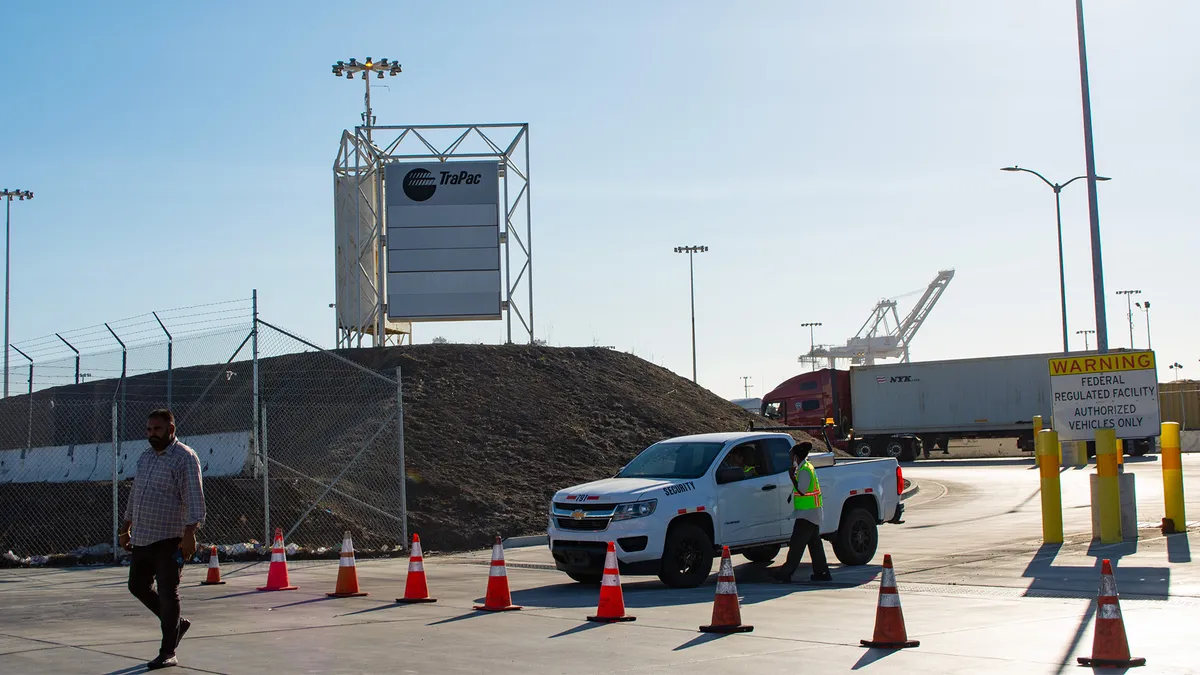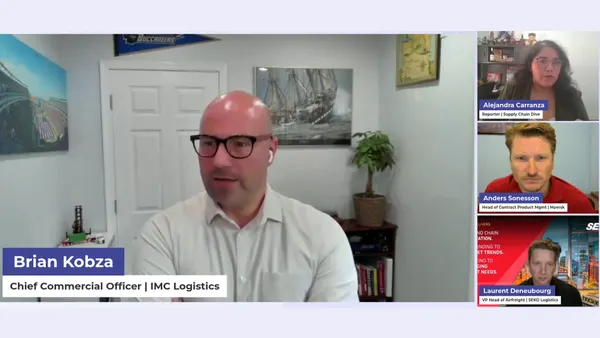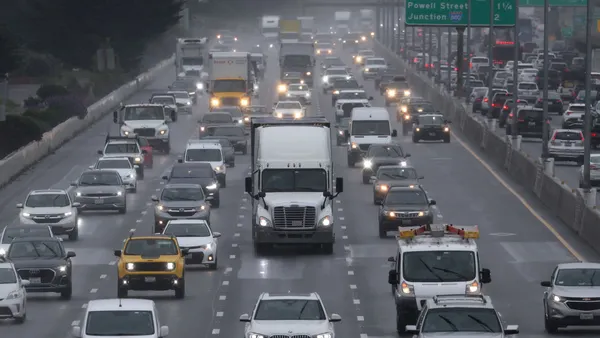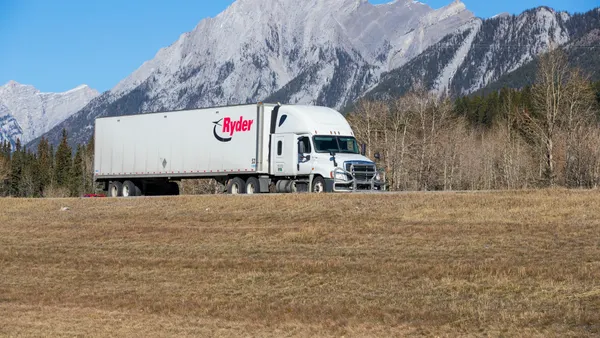Dive Brief:
- The Port of Oakland is suing truckers and others involved with AB5 protests that shut down the port and exacerbated congestion earlier this month, with the goal of preventing future blockades.
- The port filed a lawsuit on July 25 seeking a temporary restraining order and preliminary injunction against those present at the AB5 trucker protests. The lawsuit intends to “stop truckers from illegally blocking marine terminal gates and halting international trade,” Roberto Bernardo, director of communications at the Port of Oakland, said in an email.
- The Superior Court of Alameda County in California on Monday granted a temporary restraining order preventing four people “and those acting in concert with them” from blocking the passage of people or vehicles through Port of Oakland facilities. The court will consider a preliminary injunction on August 29.
Dive Insight:
Documents attached to the lawsuit reveal new details on how port officials approached — and perceived — the protests against California’s landmark labor law, which snarled port operations between July 18 and July 22.
Danny Wan, executive director at the Port of Oakland, included a declaration in the lawsuit saying he had received “numerous urgent pleas” from shippers asking for intervention that would cease interruption. A medical supplies importer, a California agricultural product exporter, a livestock importer, and “trucking companies that have been prevented from continuing their work” were among the companies that urged the protests to stop.
“Those who move their cargo through a port require reliability,” Wan wrote. “Whenever there is an event that interferes with, delays, or disrupts movement of goods, such as a protest blocking marine terminal gates, it degrades the Port's reputation globally as a reliable goods movement center, shippers and cargo owners reroute cargo, and shippers threaten to take their business elsewhere.”
By the third week of July, several ships had rerouted away from the Port of Oakland as a result of the protests, according to a project44 analysis.
For Bill Aboudi, who owns a trucking company and truck property at the port, and has seen multiple protests over the years, the temporary restraining order is a threat to future labor action.
“It’s a threat to anybody. It’s a threat to freedom of speech,” Aboudi said.
He said the fact the lawsuit includes 2,000 “John Does” could be construed as a threat to future protests, particularly for truckers and other port workers.
“I think the ILWU and you know, any other group that values you know, the protest, they need to step up and defend these owner operators,” Aboudi said.













